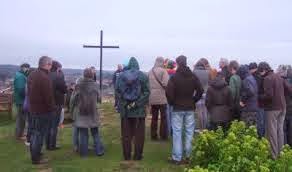The media always gives some time to reporting the Christian emphasis of
Easter, especially Good Friday and Easter Sunday. But, if you’re a church that
wants more than a token exposure, it’s a good idea to preach a sermon about
something that’s currently high on the agenda of mainstream Australia. One
Queensland Church focused on the problem of domestic violence. Others focus on
ongoing problems of poverty or bullying.
The Royal Children’s Hospital in Melbourne ran their most successful
Good Friday appeal ever this year, raising almost seventeen million dollars.
Would such an appeal work as well on any other day? Who knows? It may be that
sacrificially giving to those who are suffering is a subtle outworking of the
Christian heritage that we have as a nation.
There have also been suggestions that next year the AFL will abandon it’s
long-standing policy of refusing to stage football matches on Good Friday. I
think there’s a general willingness to respect the day but it seems inevitable that
commercial interests will encroach still further into Australian spirituality.
We have become an extremely secular nation that gives the occasional nod to
Christianity but then gets on with the “real” purpose of life – the pursuit of
happiness through financial gain.
Perhaps, in the end, the ultimate audacity of a godless society is not
to rail against Christian culture and ritual but to marginalise it, to divert
attention away from it, and to condescend to it like the party hostess who
finds an unwanted acquaintance and quips: “Oh, are you still here?”
Yes, Christians are still here. And we are an important part of this
nation. We will continue to testify to the death and resurrection of Christ
because that is the only real hope for life that anyone can possess.

